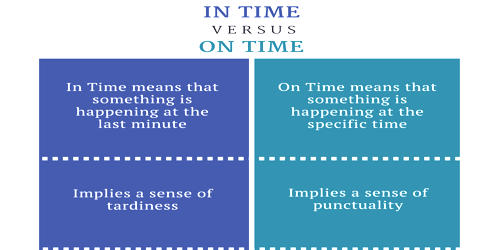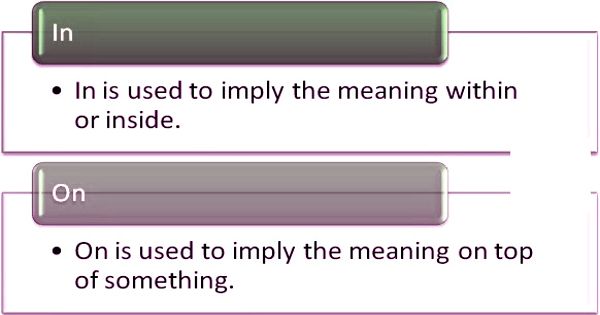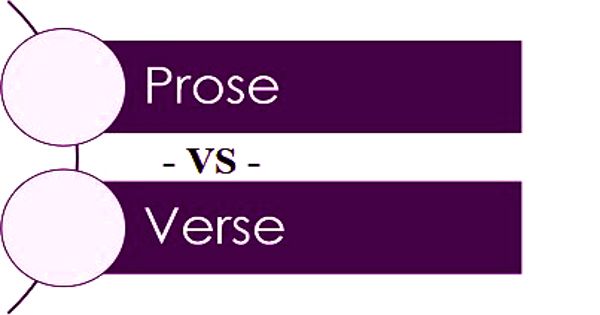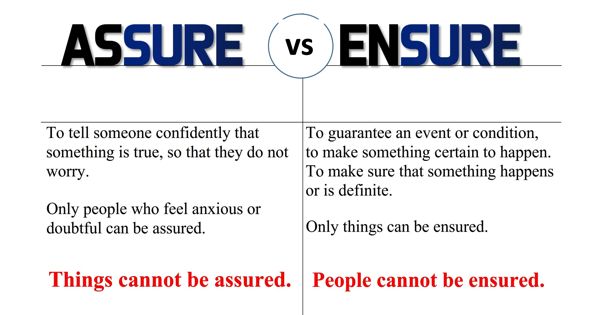The difference between “on time” and “in time” is a subtle one, and the two expressions may sometimes be used interchangeably. In our day to day life, we make plans and schedule our activities, for which we often use the words on time and in time. These are often used interchangeably, but they are not one and the same thing, in the sense that ‘on time‘ is used to mean at the specific time, while ‘in time‘ means early enough. “In time” usually has an implicit “for (some event)”, whereas “on time” means “before some deadline”. ‘On time’ means at a particular designated time, i.e. neither especially early nor late. The train is scheduled to arrive on time at 13:36. ‘In time’ means early enough, i.e. before a deadline or another cutoff.
The opposite of the word ‘on time’ is late, whereas the opposite of ‘in time’ is ‘too late’. ‘On time’ means that there is a specific time established when something is supposed/expected to happen, and it is happening at the planned time. If we say we arrived ‘in time’, we’re saying that we got there a little early – that there was time to spare.
Difference between On time and In time
ON TIME
- ‘On time’ means timely, i.e. when something is planned or expected to take place at a specified time and it takes place accordingly.
- ‘On time’ means that there is a specific time established when something is supposed/expected to happen, and it is happening at the planned time.
- When something takes place at the expected or established time, i.e. it is done according to the schedule, we use the word ‘on time’.
- The term on-time is an adjective, which reflects timeliness, i.e. happening of an event according to the schedule or plan. It is used to talk about something which occurs, arrives, or is performed, on the set or expected time and is not late.
- The term ‘on-time’ represents punctuality, i.e. at the predefined or correct time.
- ‘On time’ is commonly used with obligations and duties. When you have to report or reach somewhere in the desired time, we use the word ‘on time’.
- Examples: Alex is the only employee in this office, who is always on time. She arrived at the exam hall on time.
IN TIME
- ‘In time’ means not late or eventually, i.e. when something takes place at the last moment.
- ‘In time’ means that something happened at the last moment before it was too late; before something bad would happen.
- ‘In time’ is used to denote soon enough, i.e. just before the end moment or before the expiry of the set time.
- The term ‘in-time’ means at the edge of a particular time. It is used when something happens just at the end moment. The term often points out that you do not have sufficient time between now and when something is expected to take place, to not to be late.
- ‘In time’ is an indicator of tardiness (the sense of being late).
- ‘In time’ is used primarily with deadlines, in the sense that when you have to complete something within a particular time frame, we use ‘in time’.
- Example: The child wants to get home in time, to watch his favorite cartoon. Will she reach there in time?
















